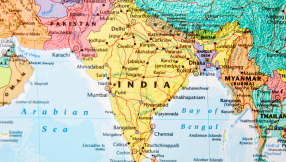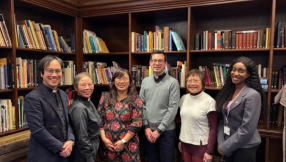Migrant workers in Muslim Qatar preparing for the 2022 FIFA World Cup are becoming Christians, according to Open Doors.
The charity, which serves persecuted Christians worldwide, has placed Qatar at number 20 on its 2017 World Watch List of countries where Christians are most at risk. A Muslim-majority country, Qatar imposes the death penalty for leaving Islam and evangelism is strictly forbidded.
Open Doors cites one worker, Simon (not his real name), a Sri Lankan working as a maintenance supervisor for some large football-related construction projects. He became a Christian after meeting a group of Christian workers.
"I would never have expected to become Christian in such a strict Muslim country. But it happened," he said
Another migrant worker, Ahmed (also a pseudonym) said: "I was a Muslim, but God had other plans for me."
Simon told Open Doors: "We can't go to people with the gospel in hand. But there is no need for that, they are coming to us. I have many conversations with colleagues about the faith, and they just keep asking questions. They only thing we have to do is answer them. There is no law against that.
"Even when we don't get a chance to preach, people notice that we are different; they sense that we care deeply about them. That's a witness in itself."
Around 80 per cent of Qatar's population are migrant workers from countries including India, Nepal and the Philippines. Migrants are sometimes poorly treated, with frequent problems over payments and contracts. Many employers illegally hold their workers' passports.
Pastor Samuel (not his real name) is a 30-year-old Filipino migrant worker who works a low-paying job 11 hours a day and carries out his ministry in the evenings. He told Open Doors God may be using the difficult experiences of migrants to draw them to faith. "Working abroad, away from the family, is an excruciating experience for every expatriate worker in Qatar," he said. "They sacrificed the joy and comfort of being with their loved ones for their desire to give them a better life.
"The homesickness is real for them, but God, in his great compassion and wisdom, uses their homesickness to lead the 'homesick' to Christ. Many of those we have encountered in Qatar testified that they came to the country for the opportunity to earn more, but God had a greater plan. They encountered the King of Kings and the Lord of Lords who does not only provide them the 'better life' but with 'life everlasting'."













